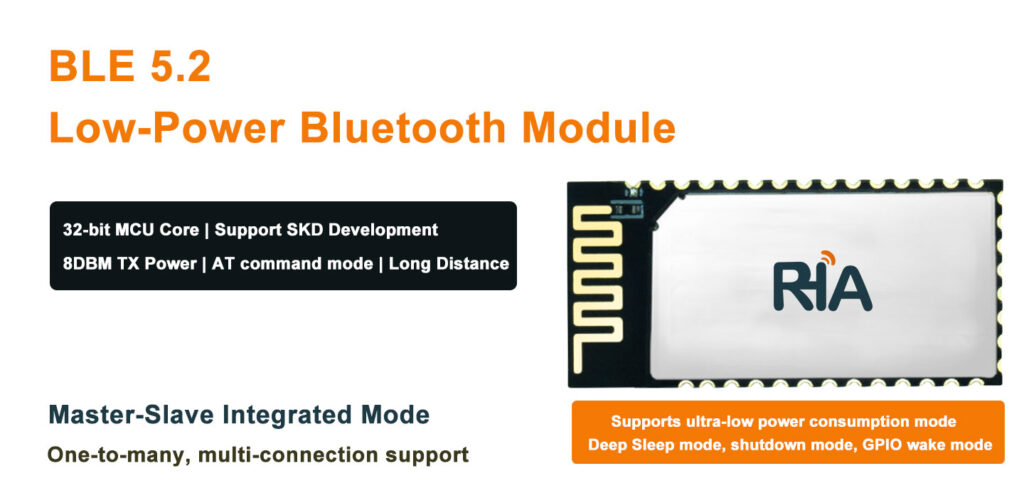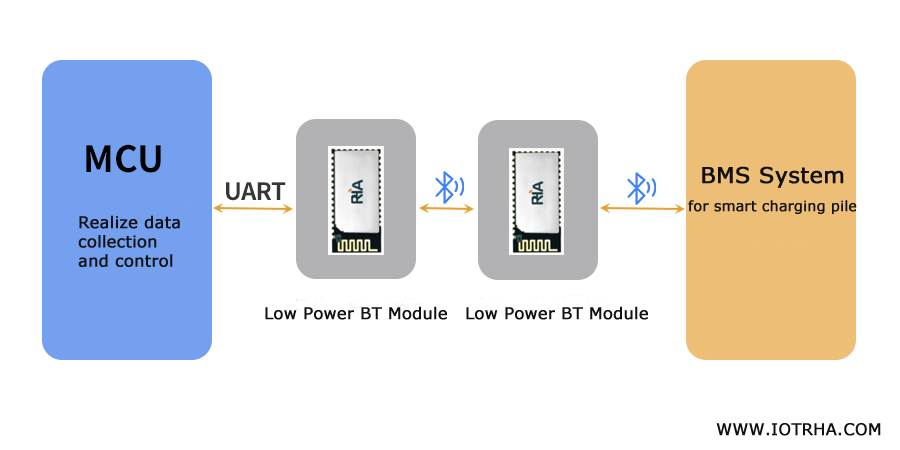With the rapid development of the electric vehicle (EV) market, smart charging piles have become an important part of modern transportation infrastructure. In this process, the battery management system (BMS) plays a vital role as the core technology to ensure the safety and performance of electric vehicle batteries. The low-power Bluetooth module (BLE) provides an efficient and low-energy wireless communication solution for the BMS system, which further enhances the functions of smart charging piles.

Challenges Faced by Traditional Charging Pile Battery BMS Systems:
As one of the new infrastructure areas, new energy charging piles are a key link affecting the development of new energy vehicles around the world. Although charging facilities continue to improve, there are still some technical problems in traditional charging piles that need to be solved.
Challenge 1: With the vigorous development of the electric vehicle industry, the demand for charging piles has surged, which has put forward higher requirements for the communication efficiency, real-time performance and intelligence level of BMS. The BMS of traditional charging piles often relies on wired connections, which not only limits the layout flexibility of charging piles, but also increases maintenance costs and complexity.
Challenge 2: Traditional fast charging piles have certain safety hazards and risks. There are problems with the communication of the battery system, which makes the battery prone to overcharging problems, such as thermal runaway of the battery, causing shared electric vehicles to catch fire while charging.
Faced with the above challenges, mainstream manufacturers have begun to apply low-power Bluetooth solutions. The IOTRHA RHA-BT102M low-power Bluetooth module has the following advantages in charging pile applications:
RHA-BT102M is a BLE Bluetooth 5.2 low-power module launched by IOTRHA, which can be used to solve the wireless BMS application solution of charging piles. The module supports master-slave mode switching function, integrates high-performance MCU and Bluetooth transceiver, and has undergone rigorous high and low temperature durability tests. It has also optimized communication in a mixed signal environment, and with a shielding cover, it has better anti-interference and stability, which can achieve accurate monitoring and efficient control of battery status.

1. Real-time monitoring and data transmission
In the BMS system, the built-in low-power Bluetooth module ANS-BT102M can transmit key data such as battery status, temperature, voltage, etc. to the charging pile and the user's mobile device in real time. Users can learn about the charging status at any time through the mobile phone APP, and operators can also monitor the health of the battery through Bluetooth connection to ensure charging safety.
2. Remote fault diagnosis and maintenance
With the built-in low-power Bluetooth module ANS-BT102M, the BMS system can realize remote diagnosis and troubleshooting. When the battery has an abnormal situation, the system can immediately notify the user and the background management system for remote diagnosis and processing to reduce charging interruptions or safety hazards caused by faults.
3. Optimization of intelligent charging strategy
The low-power Bluetooth module can also help the BMS system collect battery usage data in real time, and optimize the charging strategy through cloud analysis. According to the historical data and current status of the battery, the system can dynamically adjust the charging power and duration to extend the battery life and improve the charging efficiency.
4. User interaction and personalized services
The low-power Bluetooth module can interact with the user's mobile device to provide users with personalized charging services. For example, based on the user's charging history and preferences, the system can recommend the best charging time and place, and even set a timed charging function to meet the needs of different users.

With the continuous evolution of smart charging pile technology, low-power Bluetooth modules will play an increasingly important role in BMS systems. In the future, with the introduction of 5G and AI technologies, the application of low-power Bluetooth modules will be more extensive and in-depth, not only limited to data transmission and monitoring, but also integrating more intelligent functions such as automated scheduling, energy management and big data analysis.
In addition, the popularity of low-power Bluetooth modules will also promote the intelligent development of the entire electric vehicle ecosystem. Through interconnection with power grids, smart home systems and other IoT devices, low-power Bluetooth modules will bring users a more convenient and efficient charging experience.
RHA-BT102M Bluetooth Module Product Link:
Presents by Shenzhen IoTRHA Technology Co., LTD
